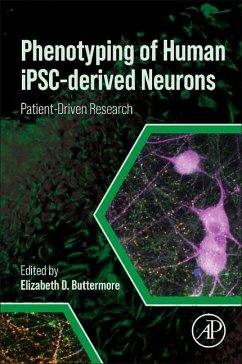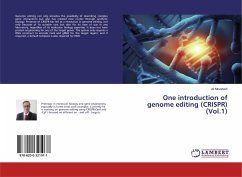
CRIPSR-Cas: a new genome-editing tool
Versandkostenfrei!
Versandfertig in 6-10 Tagen
40,99 €
inkl. MwSt.

PAYBACK Punkte
20 °P sammeln!
Bacteria possess an immune system to counteract viral attacks. "Clustered regularly interspaced short palindromic repeats - CRISPR associated proteins (CRISPR-Cas) is a prokaryotic genetic structure whose expression confers on bacteria an adaptive immunity directed against viruses. The curiosity of various scientific teams has led to the understanding and hijacking of this system for genome editing. Whether it's silencing, insertion, modification of nitrogenous bases or modulation of activity, no gene can escape this technology. Today, it is considered the simplest, most precise and least expe...
Bacteria possess an immune system to counteract viral attacks. "Clustered regularly interspaced short palindromic repeats - CRISPR associated proteins (CRISPR-Cas) is a prokaryotic genetic structure whose expression confers on bacteria an adaptive immunity directed against viruses. The curiosity of various scientific teams has led to the understanding and hijacking of this system for genome editing. Whether it's silencing, insertion, modification of nitrogenous bases or modulation of activity, no gene can escape this technology. Today, it is considered the simplest, most precise and least expensive genome-editing tool, guaranteeing its unprecedented popularity in biotechnology. The vectorization of this system further enhances targeting specificity. It has numerous applications in the healthcare field, in both diagnostic and curative applications. However, this technology can present risks and raise ethical questions, requiring regulations to govern its use.












